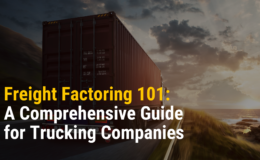There is not doubt that technology can made some major changes to the trucking industry over the past few years. Love it or hate it, technology is slated to become more integrated in our lives. Yet the advances in tech are making trucking brokers rethink how they do business.
Trucking brokers Need To Revise Freight Matching
For over half a century, trucking brokers have been booking shipment via phone, and in more recent years, email. This back and forth game of tag is inefficient and tedious for all parties involved, and leaves the door open for a lot of miscommunication. Longtime trucking brokers are losing ground to emerging apps which save owner operators and fleets time by automatically matching loads based on size, current location, and destination. Load boards almost worked as an open market for load matching, but never included anything about the price or the ability to close a transactions. Additionally, load boards were not exclusive, so there was no guarantee that the shipment wasn’t posted elsewhere and snatched up. For trucking brokers to surviving in a marketplace that is evolving rapidly, they need to start developing dedicated applications for drivers and fleets to use.
Transparency Gives More Power To Carriers
As a whole, trucking brokers take roughly $15 billion in fees annually. In the past, it was not unusual for trucking brokers to get shippers to pay more while talking carriers down from their cut. This lack of transparency has been a major bone of contention with independent drivers and fleet owners. With the new online model, the shipper is charged a flat percentage. On the other end, carriers bid on shipments and are paid for the full amount of their quote. From there the carrier is notified when they need to arrive to take the shipment, along with all of the other assurances that the transaction will go smoothly. This transparency means brokers need to become more agile, but it also allows carriers and owner operators to reclaim revenue they would not have seen in the older model.
Reputation
Brokers never had much space to make a reputation for themselves. The focus was always on getting the next deal lined up, without taking care of regular clients. With the new online model, trucking brokers can automate transactions, and have the time to focus on building long-term relationships with carriers and drivers. This should not only make for a more competitive marketplace, but it will also be more profitable for everyone involved.






